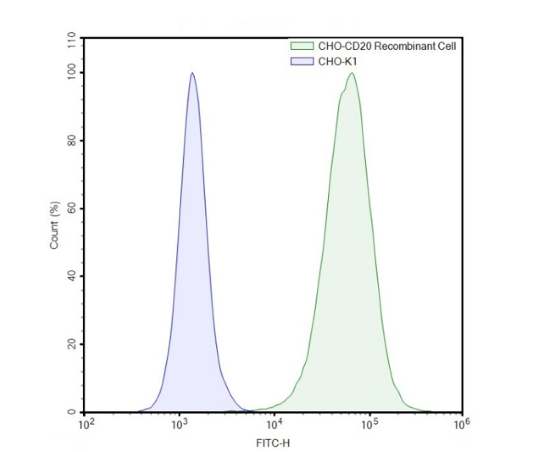Anti-CD20 Antibody, FITC-Labeled
This anti-CD20 antibody is purified recombinant antibody, which is labeled with fluorescein isothiocyanate (FITC). This antibody has been tested by flow cytometry for specific binding to human CD20 on the surface of CD20 CHO Recombinant Cell Line (BPS Bioscience #79624).
≥90%
Aqueous buffer solution.
8 mM Phosphate, pH 7.4, 110 mM NaCl, 2.2 mM KCl, 0.09% Sodium Azide, 0.2% BSA, and up to 20% glycerol. May contain a protein stabilizer.
Fluorescein isothiocyanate (FITC) is a derivative of fluorescein and has excitation and emission spectrum peak wavelengths of approximately 495 nm and 519 nm, causing it to fluoresce green.
CD20 (also known as MS4A1) is a glycosylated phosphoprotein expressed on the cell surface of B cells. CD20 is a highly attractive target antigen for immunotherapy because it is highly expressed in more than 90% of patients with B-cell lymphoma, but not in the first stage of B cell development. First approved in 1997, Rituximab (Rituxan) is a chimeric monoclonal antibody targeting CD20 and has been classified by the World Health Organization as an “Essential Medicine”. Since then, additional monoclonal antibodies against CD20 have been approved or are being tested in clinical trials for the treatment of multiple sclerosis (MS), chronic lymphocytic leukemia (CLL), follicular lymphoma, rheumatoid arthritis, non-Hodgkin’s lymphoma, systemic lupus erythematosus, and other inflammatory diseases and cancer types. Studies of CD20 function and expression patterns will continue to broaden our knowledge and application in cancer therapy.


